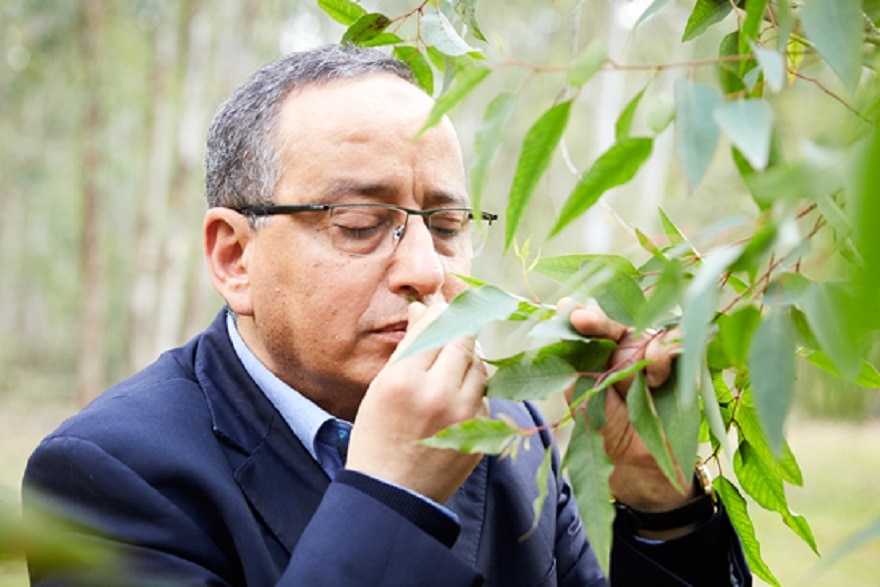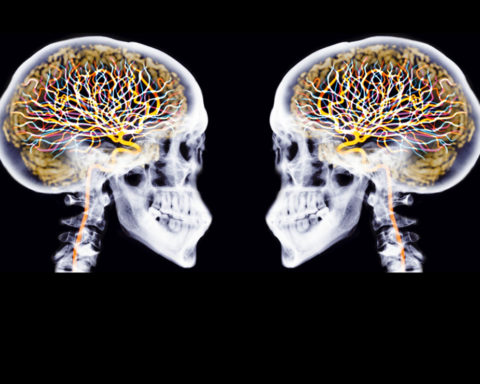The prestigious 2017 European Inventor of the Year Award has just been presented to the Moroccan biologist Adnane Remmal for his work on considerably improving the effectiveness of antibiotics. A revolutionary innovation that consists of "doping" antibiotics by using the medicinal properties of flowers and other plant organs, inspired by regional traditions. This process effectively combats the greatest threat to modern medicine, antibiotic-resistant bacteria. An innovation that therefore guarantees him a place among the best European inventors.
L’The European Patent Office (EPO), the equivalent of our national INPI, announced on Thursday June 15 the winner in the category of researchers from non-European countries /Public Prize, Adnane Remnal (1), as the bearer of a spectacular medical breakthrough. Every year, the European Inventor Award is presented to reward innovations that have provided answers to the great challenges of our time. Adnane Remmal's anti-antibiotic drug is intended to be a low-cost solution to the UN's concern about the risk of global catastrophe.
His patent on the "boosted antibiotics by Essential Oils" consists in boosting "antibiotics by using the medicinal properties of the plant world. His invention will help fight bacterial resistance caused by the abuse of antibiotics, and stop the spread of superb multi-resistant microbes.
During his research at the University Sidi Mohamed Ben Abdellah of Fez, Adnane Remmal tackled one of the major problems facing modern medicine, namely the increasing number of bacteria that have become resistant to antibiotics. According to him, a solution could come from the regional tradition of distilling flowers and other plant organs to extract aromas and infusions.
Knowing the antimicrobial, antiparasitic and antifungal properties of many plants, Remmal also knew that when used in doses high enough to be effective, they are often unsuitable for medical use due to frequent side effects such as headaches and nausea. Hence the solution consisting of relying on the inherent virtues of antibiotics and essential oils, combining the two to achieve a synergistic effect while avoiding side effects.
Developed by Remmal since the mid-1990s and patented by the EPO in 2014, the invention has resulted in a new medicine currently in the final stages of clinical trials. This drug, which is expected to be on the market by the end of 2017, uses a dual approach based on essential oils to counter multi-drug resistance. In addition to its drug that naturally enhances the action of antibiotics, Remmal has invented an essential oil supplement that replaces antibiotics and other chemicals in animal feed. The abuse of antibiotics in intensive animal husbandry is one of the major causes of antibiotic resistance.
Remmal joins the long list of finalists and winners of the European Inventor's Award who have drawn inspiration from nature to come up with innovative solutions. Danish inventor Peter Holme Jensen and his team at Aquaporin (2014; SME - winners) drew inspiration from the natural intercellular transport of water to develop his energy-efficient membrane to purify water. The targeted use of natural compounds to treat various diseases is central to the inventions of Ivars Kalvins (2015; Lifetime Achievement - finalist). Dutch researcher Hendrik Jonkers (2015; Research - finalist) had the idea of creating a self-repairing concrete by adding lime-producing bacteria to the mixture.
Societal impact
The World Health Organization and several States and other actors have placed antimicrobial resistance at the top of their priorities. The global scale of the problem makes it difficult to solve. Drug-resistant infections kill some 700,000 people worldwide each year, a toll that could rise to 10 million by 2050 without a new generation of antibiotics. Hence the interest in Remmal's newly developed drug, which attacks moderately and highly resistant bacteria more effectively than standard antibiotics and with fewer side effects and resistance. This drug will make it possible to better contain pathogens and give humanity a respite to invent new antibiotics.
At the same time, the natural livestock feed supplement developed by Remmal addresses another aspect of the problem, as half of the world's antibiotics, including those needed for human medicine, are used in animal feed. Administered in sub-therapeutic doses, these antibiotics stimulate the growth of livestock but allow microorganisms to survive by developing resistance. These are then transmitted through the food chain, as in the case of resistant strains of salmonella and E. coli, and proliferate in sewage and drinking water.
When added to normal animal feed, Remmal's formula proves to be just as effective as standard antibiotics without having the side effects or generating resistance.
Economic impact
The European Commission estimates the additional annual cost and loss of productivity resulting from infections caused by resistant bacteria to be at least €1.5 billion. According to a World Bank report published in 2016, the annual impact of antimicrobial resistance on the global health budget by 2050 could range from €283 billion to more than €984 billion. Part of the problem is that each newly synthesized antibiotic costs the community between €500 million and €1 billion and has its own potential for resistance, side effects and toxicity, not to mention the risk that investments in a new drug will not be followed by results.
Remmal's "doped antibiotics" are in their final clinical trials and are expected to be on the market by the end of 2017. The new drug has a low production cost and can be sold at an affordable price because it uses natural molecules that have already been tested and approved in the pharmaceutical industry.
In 2004, in order to commercialize its pharmaceutical products, Remmal founded a company that has since filed four patent applications to protect the concept of enhancing the effect of anti-infective agents. The young company has led the leading pharmaceutical company in Morocco and West Africa to invest in the marketing of "doped antibiotics".
How does it work?
There are more than 100 antibiotics divided into several classes, each with its own way of working. Generally speaking, antibiotics prevent the bacteria from reproducing or repairing their damaged DNA, or exploit certain weaknesses in their cell wall.
At the molecular level, Remmal compares the functioning of an antibiotic to a key used to open a door: "As soon as the key opens the door, the bacteria die, but if a mutation changes the geometry of the lock even slightly, the key no longer fits and the bacteria become resistant.
By "doping" the antibiotic with natural oils, Remmal has invented a key that not only opens the door, but demolishes it.
Remmal's special key combines the natural antimicrobial properties of certain local plants with known antibiotics such as penicillins, cephalosporins and even antibiotics used against methicillin-resistant Staphylococcus aureus (MRSA). The interaction between the natural "doping" molecules and the antibiotics creates "molecular complexes" that the resistance mechanisms implemented by bacteria have difficulty recognizing. It is then very difficult for bacteria to develop effective resistance to anti-infective treatment.
Alongside Adnane Remmal, five European inventors were awarded prizes on 15 June for their discoveries. They are Italian microbiologist Rino Rappuoli, German inventor Günter Hufschmid, the research group Galileo, a European geolocation system, and two other finalists in the SME category Gert-Jan Gruter (Netherlands) for the plant-based plastic bottles, and Steve Lindsey (UK) for the high-efficiency air compressor.

(1) After studying biology at the University of Fez, Remmal was invited to continue his training at the Orsay centre (University of Paris-XI) in 1982. While working in the research teams led by Édouard Coraboeuf and Philippe Meyer, he obtained a postgraduate degree in electrophysiology and cardiovascular pharmacology and a PhD in molecular pharmacology (1987).
Renouncing offers to stay in France after his PhD, Remmal preferred to return to Morocco to share his passion for research with his Moroccan students and contribute to the technological and scientific development of his country. Remmal became professor-researcher at the University of Fez in 1988, and his fundamental research work on the antimicrobial activity of essential oils earned him a second PhD in microbiology in 1994.
For its livestock feed supplement based on plant extracts, Remmal received the 2015 Africa Innovation Award from the Africa Innovation Foundation.












